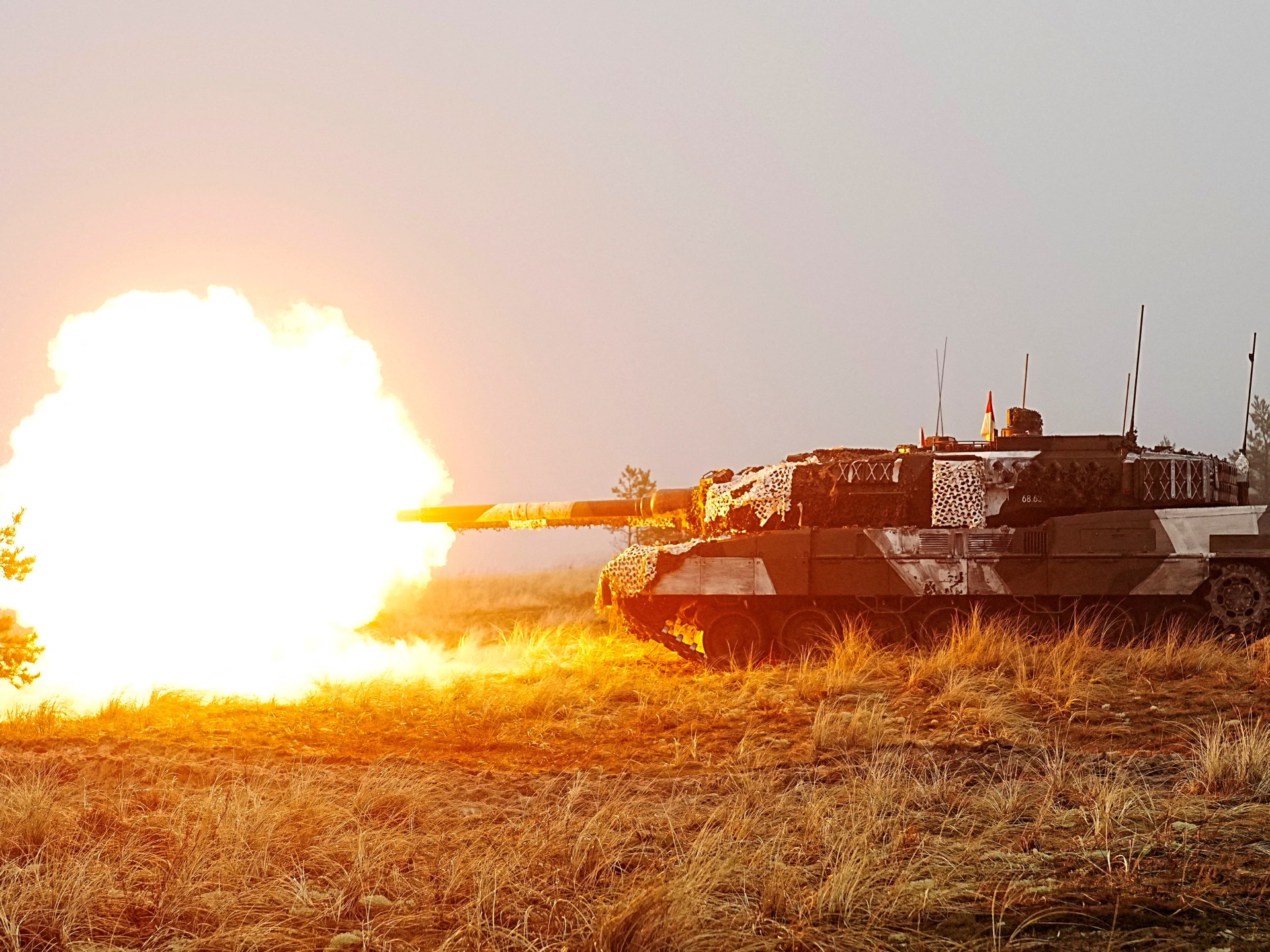German Chancellor Olaf Schultz called today, Friday, for what he described as "capable allies" to expedite the dispatch of tanks to Ukraine, at a time when battles have intensified on many fronts, most notably Bakhmut, which Russian forces have been trying to control for months.
In a speech at the Munich Security Conference, Schultz called on countries capable of sending combat tanks to Ukraine to "do it now," stressing that military support to Ukraine "must continue."
Schultz stressed the need to "prevail caution against any rush to any decision on arms supplies, and we will continue to take the appropriate decision."
In turn, Ukrainian President Volodymyr Zelensky renewed his call to "accelerate" efforts to support Ukraine, stressing that "there is no alternative to Ukraine's victory."
Zelensky said - in a video intervention - at the opening of the same conference, "We need speed. Speed in concluding our agreements, speed in supplies to enhance our battle, speed in decisions to limit Russian capacity...".
Schultz called on countries capable of sending combat tanks to Ukraine to "do it now" (Reuters)
Israel will fulfill its promise
In a related context, the Israeli website Yedioth Ahronoth reported that Israel will implement its promise to provide Kiev with early warning systems for missiles.
The site indicated that Israeli Foreign Minister Eli Cohen agreed - during his visit to Kiev yesterday, Thursday - with Zelensky to work jointly against Iran in international forums and to present initiatives to impose new economic sanctions on it.
Yedioth Ahronoth indicated that Zelensky confirmed that Ukraine has something to offer in this context, hinting at the capabilities that his country has acquired in intercepting and shooting down Iranian drones used by the Russian army to bomb Ukrainian cities.
According to the site, Cohen stressed - from Kiev - the integrity of the Ukrainian lands, indicating that Israel would support a Ukrainian initiative for peace at the United Nations.
Bakhmut battles continue
These developments come at a time when Russia continues to mobilize its forces with the aim of controlling the strategic city of Bakhmut, in the east of the country.
The spokesman for the Eastern Military District in the Ukrainian army, Sergey Chervaty, said that the Russian forces are still massing their forces on the axes of the city.
For his part, the governor of the Ukrainian province of Donetsk reported that 5 were killed and 10 others were wounded in a Russian missile strike that targeted a residential neighborhood in the city of Bakhmut, the center of the ongoing battles in eastern Ukraine.
The Ukrainian army also confirmed that its forces had repelled 14 Russian attempts to advance in the Luhansk and Donetsk provinces, in the east of the country.
Yesterday, the commander of the Russian paramilitary Wagner Group, Yevgeny Prigozhin, expected control of Bakhmut in March or next April.
"In order to control Bakhmut, all supply routes must be cut," Prigozhin said in a rare statement on Telegram, denouncing what he called "the terrible military bureaucracy."
Other fronts are on fire
In Kharkiv, the Al-Jazeera correspondent reported that the city was subjected to a series of missile strikes, in conjunction with the continuing sound of warning sirens in the province.
The city's mayor announced that two neighborhoods were targeted with 5 S-300 missiles, stressing that there were casualties.
The head of the military department in Kharkiv province confirmed the readiness of his forces to repel any attempts by Russian forces to attack the province.
The Ukrainian General Staff spoke of repelling Russian attacks in separate areas of Luhansk, Donetsk and Kherson.
It said that another team of Iranian trainers had recently arrived in Luhansk to train the Russian army on the use of unmanned offensive air systems.
In the south, the governor of the city of Sevastopol in the Crimea, Mikhail Razvogaev, said that the air defenses shot down a Ukrainian march at the Balaclava power station without causing any damage, indicating that work was proceeding normally.

